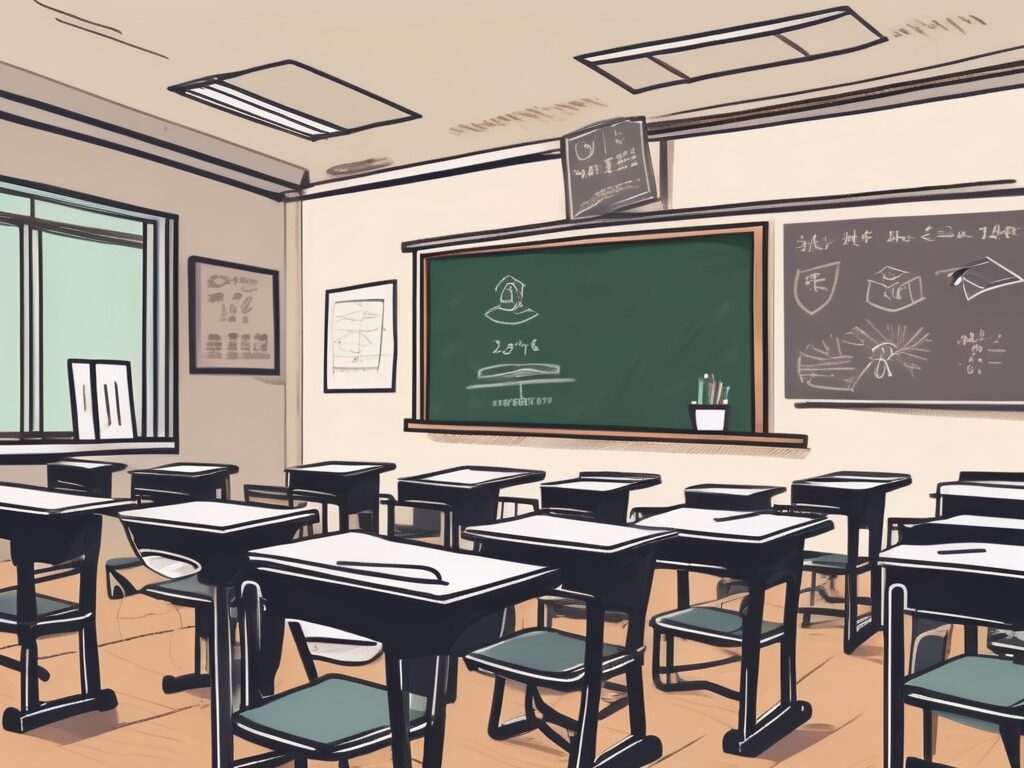html
Overcoming Teaching Challenges in South Korea: 5 Effective Strategies
Teaching in South Korea can be a rewarding yet challenging experience. With a unique educational culture, high expectations, and a diverse student body, educators often face obstacles that can hinder their effectiveness in the classroom. This blog post aims to explore five effective strategies for overcoming these teaching challenges, ensuring that educators can thrive in their roles and provide the best possible education for their students.
Understanding the Teaching Landscape in South Korea
Before diving into the strategies, it’s essential to understand the context of teaching in South Korea. The country is known for its rigorous education system, which places a strong emphasis on academic achievement. Teachers are often viewed as authority figures, and there is a significant focus on rote learning and standardized testing. This environment can create challenges such as student disengagement, pressure to perform, and cultural differences in communication styles.
1. Foster a Positive Classroom Environment
Creating a positive classroom environment is crucial for student engagement and learning. In South Korea, where students may feel immense pressure to succeed, fostering a supportive atmosphere can help alleviate stress and encourage participation. Here are some actionable tips:
- Build Relationships: Take the time to get to know your students. Understanding their interests, strengths, and challenges can help you tailor your teaching approach.
- Encourage Open Communication: Create an environment where students feel comfortable expressing their thoughts and questions. This can be achieved through regular check-ins and feedback sessions.
- Incorporate Collaborative Learning: Group activities can promote teamwork and help students learn from one another, fostering a sense of community in the classroom.
By prioritising a positive classroom environment, teachers can enhance student motivation and engagement, leading to better academic outcomes.
2. Embrace Technology in the Classroom
In today’s digital age, integrating technology into the classroom is essential. South Korean students are often tech-savvy, and leveraging technology can enhance their learning experience. Here are some effective ways to incorporate technology:
- Utilise Interactive Tools: Tools like Kahoot, Quizlet, and Google Classroom can make learning more interactive and enjoyable.
- Incorporate Multimedia Resources: Use videos, podcasts, and online articles to supplement traditional teaching methods and cater to different learning styles.
- Encourage Online Collaboration: Platforms like Padlet or Microsoft Teams can facilitate group projects and discussions, allowing students to collaborate beyond the classroom.
By embracing technology, teachers can create a more dynamic and engaging learning environment that resonates with students.
3. Adapt to Cultural Differences
Understanding and adapting to cultural differences is vital for effective teaching in South Korea. The educational culture may differ significantly from what some educators are accustomed to. Here are some strategies to bridge cultural gaps:
- Learn About Korean Culture: Familiarise yourself with Korean customs, values, and communication styles. This knowledge can help you connect with students and their families.
- Be Mindful of Hierarchical Structures: Respect for authority is deeply ingrained in Korean culture. Acknowledge this in your interactions with students and parents.
- Encourage Student Voice: While respecting cultural norms, find ways to encourage students to express their opinions and ideas, fostering a more inclusive classroom.
By adapting to cultural differences, teachers can build stronger relationships with their students and create a more inclusive learning environment.
4. Implement Differentiated Instruction
Every student has unique learning needs, and implementing differentiated instruction can help address these differences. In South Korea, where classrooms can be large and diverse, this approach is particularly beneficial. Here are some strategies for differentiation:
- Assess Student Needs: Regularly assess students’ strengths and weaknesses to tailor your instruction accordingly.
- Offer Varied Learning Activities: Provide a range of activities that cater to different learning styles, such as visual, auditory, and kinesthetic.
- Group Students Strategically: Use flexible grouping to allow students to work with peers who have similar or complementary skills.
By implementing differentiated instruction, teachers can ensure that all students receive the support they need to succeed academically.
5. Prioritise Professional Development
Continuous professional development is essential for teachers to stay current with educational trends and best practices. In South Korea, where the education system is constantly evolving, investing in professional growth can help educators overcome challenges. Here are some ways to prioritise professional development:
- Attend Workshops and Conferences: Participate in local and international workshops to learn new teaching strategies and network with other educators.
- Engage in Online Learning: Take advantage of online courses and webinars that focus on specific teaching challenges or innovative practices.
- Join Professional Learning Communities: Collaborate with fellow educators to share experiences, resources, and support each other in overcoming challenges.
By prioritising professional development, teachers can enhance their skills and adapt to the ever-changing educational landscape in South Korea.
Conclusion
Overcoming teaching challenges in South Korea requires a multifaceted approach that includes fostering a positive classroom environment, embracing technology, adapting to cultural differences, implementing differentiated instruction, and prioritising professional development. By employing these five effective strategies, educators can enhance their teaching effectiveness and create a more inclusive and engaging learning experience for their students.
Empower Your Teaching Career with IPGCE
As we strive for a more inclusive education system in Malaysia, the role of qualified and well-trained educators becomes increasingly crucial. IPGCE is dedicated to supporting teachers in their professional journey, offering the International Postgraduate Certificate in Education (iPGCE) to enhance qualifications and open doors to international teaching opportunities. With our program, you can expect a significant increase in interview callbacks, promotion rates, and salary. Plus, you’ll join a global network of educators, gain a deeper understanding of international curricula, and enjoy the flexibility of online study. Don’t let inadequate credentials or isolation hold you back. Join the UK’s #1 Teacher Training Course today and take a decisive step towards a fulfilling career in inclusive education.
For more insights on teaching strategies, check out our posts on Effective Teaching Methods and Cultural Awareness in Education.
Connect with us on LinkedIn for more updates and resources!

